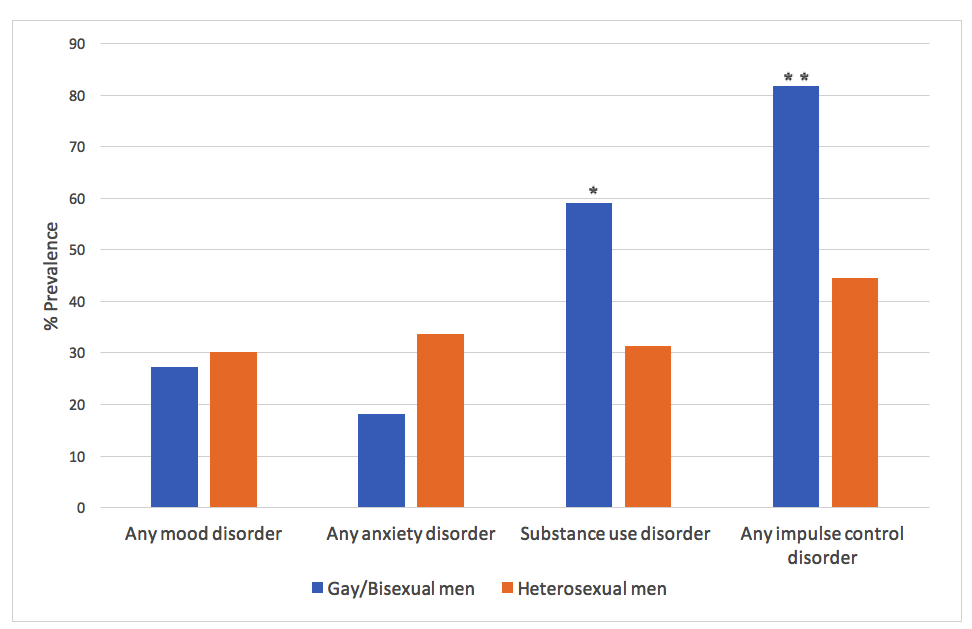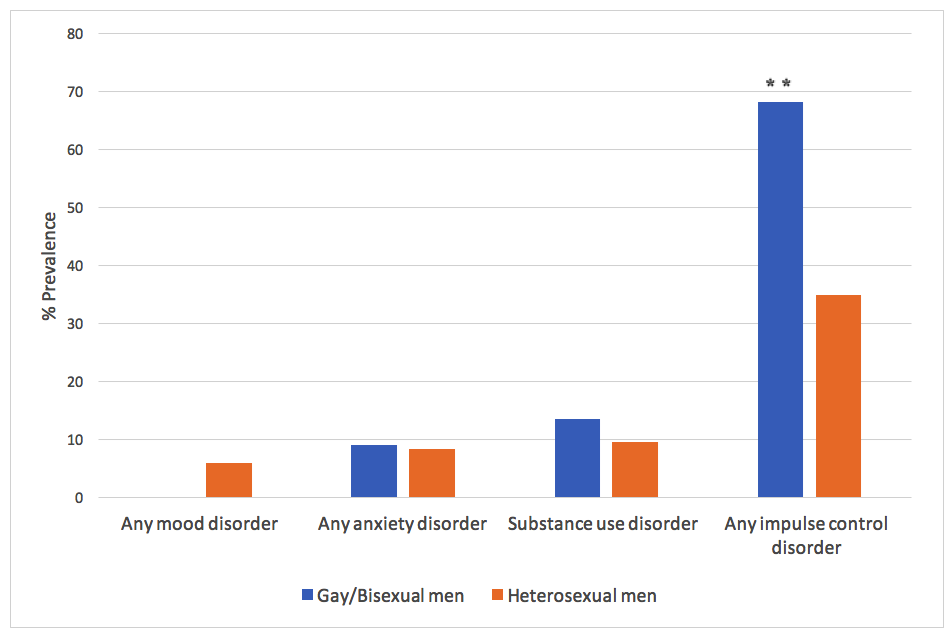The WAGER, Vol. 22(7) – Mental health and sexual orientation among people with Gambling Disorder
Although people who identify as LGBTQ+ have higher rates of mental health and substance use problems, which are risk factors for Gambling Disorder, few studies have examined how mental health, gambling, and sexual/gender identity intersect. In 2006, Jon Grant and Marc Potenza conducted the first and only study to examine the relationship between mental health and sexual orientation among a sample of people seeking treatment for gambling problems. This week, as a part of our Special Series on Addiction among the LGBTQ+ Community, The WAGER reviews their study.
What was the research question?
What is the relationship between psychiatric comorbidity and sexual orientation among a sample people seeking treatment for gambling problems?
What did the researchers do?
Using referrals for outpatient mental health treatment and treatment-related studies, the researchers recruited 105 adult men who met DSM-IV criteria for pathological gambling. Each participant met privately with Dr. Grant and completed an interview to assess mental health based upon DSM-IV criteria, sexual orientation, and impulse control disorders. The researchers compared rates of psychiatric comorbidity among gay/bisexual and heterosexual men.
What did they find?
Of the 105 male gamblers, 15 identified as gay and 7 identified as bisexual. Gay/bisexual men were more likely than other participants to have a lifetime or current impulse control disorder. Gay/bisexual men also reported higher rates of substance use, impulse disorders and greater impairment in their daily lives (Figure 1 & 2). The figures below only reflect some of the psychiatric disorders that were assessed in the study.
Why do these findings matter?
The mechanisms of addiction are complex, yet there is evidence that mental health is a cause and consequence of addiction. These findings suggests that gay/bisexual males with gambling disorder may be struggling wider range of problems than heterosexual men. This should motivate gay/bisexual men, as well as others with gambling-related problems, to seek treatment for additional mental health problems. The LGBTQ+ community seems to be a population that is at-risk for problems with mental health and addiction; therefore, public health research should be devoted to assessing both sexual orientation and problems with gambling in a more standardized way.

Figure 1. Rates of lifetime psychiatric disorders in gay/bisexual and heterosexual men seeking treatment for gambling-related problems. Asterisks indicate significantly different differences between the groups. Click image to enlarge.

Figure 2. Rates of current psychiatric disorders in gay/bisexual and heterosexual men seeking treatment for gambling-related problems. Asterisks indicate significantly different differences between the groups. Click image to enlarge.
Every study has limitations. What were the limitations in this study?
The sample for this study was made up of individuals who were already seeking treatment. Only a minority of people with gambling problems seek treatment for those problems; therefore, the psychopathology of people seeking treatment may not reflect the general population of gamblers. Additionally, the researchers created categories for mood, anxiety, and substance use disorders by combining multiple related disorders. Because the disorders in these categories (i.e. generalized anxiety, bi-polar disorder, alcohol use disorder) can interact with addiction in different ways, for treatment purposes it would be helpful to identify specific disorders.
For more information:
Worried you or a loved one has a gambling problem? Check out the National Center on Problem Gambling for screening tools and resources. For more of our resources, gambling screening tools and treatment referral information please click here.
— Alec Conte
What do you think? Please use the comment link below to provide feedback on this article.